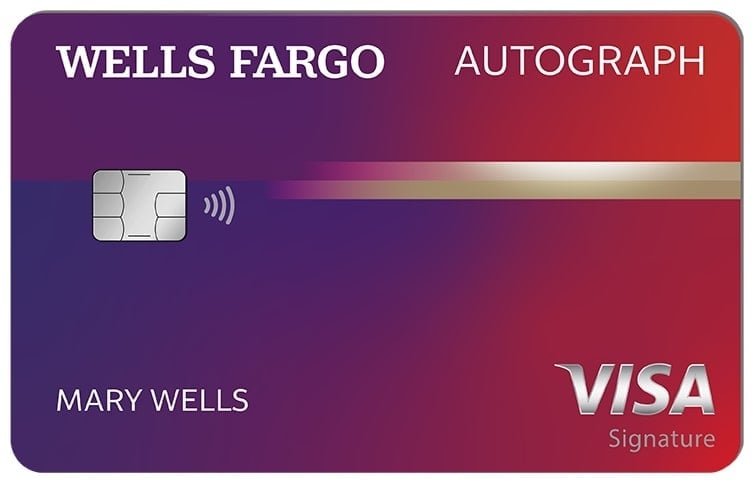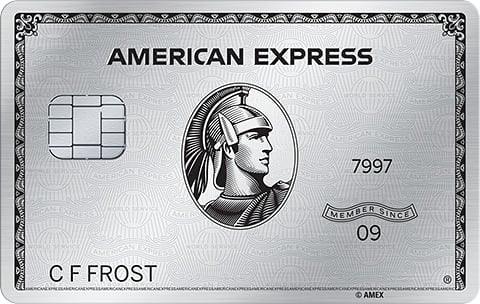3 Best Travel Credit Cards for Beginners, Plus Alternatives
Just getting started with collecting travel rewards? Here are the best starter cards for beginners to consider.

Many or all of the products on this page are from partners who compensate us when you click to or take an action on their website, but this does not influence our evaluations or ratings. Our opinions are our own.
The best travel credit cards for beginners have flexible rewards, easy-to-use benefits and a manageable annual fee. Our recommendations generally fall into three categories: no fee, midtier fee and high fee. Cards with no annual fee are typically no-frills options, while those looking for splashy perks like airport lounge access and elite status will need to pay a high fee. Opening one of these cards will get you on your way to your first award travel redemption before you know it.
1. No fee: Chase Freedom Unlimited®
When it comes to no-fee travel credit cards, the Chase Freedom Unlimited® is about as good as they come. That, coupled with its ease of use, may make it one of the best entry-level travel credit cards available.
Earning Chase points
Here are some benefits that make this zero-fee card worth a look:
- Welcome bonus: Earn a $200 Bonus after you spend $500 on purchases in your first 3 months from account opening.
- 5% cash back on travel purchased through Chase, 3% cash back on drugstore purchases and dining at restaurants, including takeout and eligible delivery service, and unlimited 1.5% cash back on all other purchases.
It’s not the card you’ll want to use while traveling abroad, though. That’s because you will be charged foreign transaction fees for purchases made overseas. But for earning points at home, this card is a workhorse, especially when used on everyday expenses like groceries.
Get the 'Cheat Codes' to Cheaper Travel
Unlocking the secret to saving a ton on travel is easier than you think. 📤 Our free newsletter shows you how in 5 min. or less.

Redeeming Chase points
While the Chase Freedom Unlimited® is technically a cash-back card, your rewards are earned in the form of Chase Ultimate Rewards® points. These points can be redeemed for statement credits and through Chase's travel portal, at a value of 1 cent per point.
However, the best way to maximize the value of your points is by pairing the Chase Freedom Unlimited® with an eligible card, such as the Chase Sapphire Preferred® Card, that allows you to transfer your Chase Ultimate Rewards® points to partner airline and hotel loyalty programs.
Full list of Chase transfer partners
Airlines
- Aer Lingus (1:1 ratio).
- Air Canada (1:1 ratio).
- Air France-KLM (1:1 ratio).
- British Airways (1:1 ratio).
- Iberia (1:1 ratio).
- JetBlue (1:1 ratio).
- Singapore (1:1 ratio).
- Southwest (1:1 ratio).
- United (1:1 ratio).
- Virgin Atlantic (1:1 ratio).
Hotels
- Hyatt (1:1 ratio).
- IHG (1:1 ratio).
- Marriott (1:1 ratio).
🤓 Nerdy Tip
Transferable rewards are especially valuable because you’re not limited to one loyalty program for redemption options the way you would be if you earned points or miles with an airline- or hotel-specific card. For example, let’s say you visit a city that has IHG, Marriott and Hyatt hotels. After checking the points pricing, you realize that the Hyatt option is the cheapest. If you had a credit card that only earned Marriott points, Marriott would be your only option. But if your card earned rewards transferable to all three loyalty programs, you could choose which hotel program to transfer your points to and get the most value. Another solid no-fee option: The Wells Fargo Autograph® Card
The Wells Fargo Autograph® Card earns unlimited 3 points per $1 spent on restaurants, travel, gas stations, transit, popular streaming services and phone plans. Otherwise, purchases earn 1 point per $1 spent. Those points can be moved to a limited set of travel transfer partners. The card comes with a nice welcome bonus and has no foreign transaction fees.
Its current welcome bonus: Earn 20,000 bonus points when you spend $1,000 in purchases in the first 3 months - that's a $200 cash redemption value.
2. Midtier fee: Chase Sapphire Preferred® Card
A favorite among savvy travelers, the Chase Sapphire Preferred® Card is one of the best beginner travel credit cards out there. It comes with a $95 annual fee, but it’s easy to use and offers flexibility in using your points, making this card tough to beat.
Some of the perks and benefits of the Chase Sapphire Preferred® Card include:
- Welcome bonus: Earn 75,000 bonus points after you spend $5,000 on purchases in the first 3 months from account opening.
- 5x points on all travel purchases through Chase, excluding purchases that qualify for the $50 annual hotel credit.
- 3x points on all dining and takeout purchases, select streaming services, and online grocery purchases (not including Target, Walmart and wholesale clubs).
- 2x points on all other travel purchases.
- 1:1 transfer rate if you want to convert your points to partner airline miles or hotel points.
- No foreign transaction fees.
Earning Chase points
This card is a versatile option for those who spend a lot on travel purchases and dining out (or ordering in).
The welcome offer is also exceptional considering the middle-of-the-road annual fee, though the minimum spend required to earn the bonus points is generally a little higher than with some other cards.
Redeeming Chase points
What makes this card worth a second glance as a starter travel credit card is its redemption options. You can either book travel and pay directly with points through Chase's booking portal, or you can transfer your points to frequent traveler programs for airlines and hotels like United Airlines, Southwest Airlines, Marriott and Hyatt.
Another solid mid-fee option: The Capital One Venture Rewards Credit Card
The Capital One Venture Rewards Credit Card earns unlimited 2x miles on all purchases, plus 5x miles on rental cars, vacation rentals and hotels booked through Capital One Travel.
You'll also get a Global Entry/TSA PreCheck credit, a healthy welcome bonus and access to more than 15 Capital One transfer partners.
Its welcome bonus: LIMITED-TIME OFFER: Enjoy $250 to use on Capital One Travel in your first cardholder year, plus earn 75,000 bonus miles once you spend $4,000 on purchases within the first 3 months from account opening - that’s equal to $1,000 in travel.
Full list of Capital One transfer partners
Airlines
- Aeromexico (1:1 ratio).
- Air Canada (1:1 ratio).
- Air France-KLM (1:1 ratio).
- Avianca (1:1 ratio).
- British Airways (1:1 ratio).
- Cathay Pacific (1:1 ratio).
- Emirates (1:1 ratio).
- Etihad (1:1 ratio).
- EVA (2:1.5 ratio).
- Finnair (1:1 ratio).
- Japan Airlines (2:1.5 ratio).
- JetBlue (5:3 ratio).
- Qantas (1:1 ratio).
- Qatar Airways (1:1 ratio).
- Singapore Airlines (1:1 ratio).
- TAP Air Portugal (1:1 ratio).
- Turkish Airlines (1:1 ratio).
- Virgin Red (1:1 ratio).
Hotels
- Accor (2:1 ratio).
- Choice Privileges Hotels (1:1 ratio).
- I Prefer Hotel Rewards (1:2 ratio).
- Wyndham Rewards (1:1 ratio).
» Learn more: How the Capital One travel portal works
3. High fee: American Express Platinum Card®
Ready to dive into travel rewards with both feet and reap all of the benefits of a top-tier card? A good first travel card for those willing to pay a hefty annual fee in exchange for a slew of travel benefits is the American Express Platinum Card®.
With a $895 annual fee (see rates and fees), it doesn’t come cheap, but it provides some seriously valuable perks:
- Welcome bonus: You may be eligible for as high as 175,000 Membership Rewards® Points after spending $12,000 in eligible purchases on your new Card in your first 6 months of Membership. Welcome offers vary and you may not be eligible for an offer. Terms apply.
- Earn 5x points on flights (on up to $500,000 of purchases per calendar year) booked directly with airlines or travel booked through American Express, plus 1x points on other purchases.
- $600 annually for prepaid hotel bookings through American Express at more than 2,000 hotels. (Fine Hotels and Resorts or The Hotel Collection properties.)
- Get a fee credit for Global Entry or TSA PreCheck.
- Get $209 back per year on a CLEAR+ annual membership.
- Get up to $15 per month and $35 in December ($15 monthly credit plus a $20 bonus) of Uber Eats or ride credit in the U.S. Enrollment required. Must use card for Uber purchase to use credits.
- Marriott Bonvoy Gold Elite Status. Enrollment required.
- Hilton Honors™ Gold Status. Enrollment required.
Terms apply.
If you travel frequently — and like to do so in style — this card may be worth the high annual fee. If you stay at hotels often (specifically Marriott and Hilton properties), enjoy relaxing in airport lounges and use all the statement credits, you’ll get more out of this card than you pay.
Plus, you'll have access to more than 20 transfer partners, including airlines and hotels.
Full list of AmEx transfer partners
Airlines
- Aer Lingus AerClub (1:1 ratio).
- AeroMexico Club Premier (1:1.6 ratio).
- Air Canada Aeroplan (1:1 ratio).
- Air France/KLM Flying Blue (1:1 ratio).
- ANA Mileage Club (1:1 ratio).
- Avianca LifeMiles (1:1 ratio).
- British Airways Club (1:1 ratio).
- Cathay Pacific Asia Miles (5:4 ratio)
- Delta SkyMiles (1:1 ratio).
- Emirates Skywards (1:1 ratio).
- Etihad Guest (1:1 ratio).
- Iberia Plus (1:1 ratio).
- JetBlue TrueBlue (2.5:2 ratio).
- Qantas Airways Frequent Flyer(1:1 ratio).
- Singapore Airlines KrisFlyer (1:1 ratio).
- Virgin Atlantic Flying Club (1:1 ratio).
Hotels
- Choice Hotels (1:1 ratio).
- Hilton Hotels & Resorts (1:2 ratio).
- Marriott Hotels & Resorts (1:1 ratio).
For details on transfer ratios, see AmEx's website.
Other solid high-fee options
The Chase Sapphire Reserve® includes a slew of statement credits that helps offset the annual fee. You’ll also get Priority Pass access, including unlimited visits to Chase Sapphire lounges. You can use points to book travel through Chase or those points can also be transferred to Chase’s partners.
Its annual fee is $795, and its current sign-up bonus is: Earn 125,000 bonus points after you spend $6,000 on purchases in the first 3 months from account opening.
The Capital One Venture X Rewards Credit Card comes with a $300 annual travel credit, allows points transfers to more than 15 airline and hotel transfer partners, and offers unlimited access to Priority Pass and Capital One lounges. Plus, you’ll earn 10,000 bonus miles each year on your account anniversary.
New cardholders can earn a welcome bonus: Earn 75,000 bonus miles when you spend $4,000 on purchases in the first 3 months from account opening, equal to $750 in travel.
To view rates and fees of the American Express Platinum Card®, see this page.
How to maximize your rewards
You want a travel credit card that prioritizes what’s important to you. Here are some of the best travel credit cards of 2026:
- Flexibility, point transfers and a large bonus: Chase Sapphire Preferred® Card
- No annual fee: Wells Fargo Autograph® Card
- Flat-rate travel rewards: Capital One Venture Rewards Credit Card
- Bonus travel rewards and high-end perks: Chase Sapphire Reserve®
- Luxury perks: American Express Platinum Card®
- Business travelers: Ink Business Preferred® Credit Card
Article sources
NerdWallet writers are subject matter authorities who use primary,
trustworthy sources to inform their work, including peer-reviewed
studies, government websites, academic research and interviews with
industry experts. All content is fact-checked for accuracy, timeliness
and relevance. You can learn more about NerdWallet's high
standards for journalism by reading our
editorial guidelines.
Limited Time Only: Earn $1,000 Toward Travel!
Capital One Venture Rewards Credit Card 
Travel

For a limited time, the
Capital One Venture Rewards Credit Card is offering new cardholders an especially rich bonus: Enjoy $250 to use on Capital One Travel in your first cardholder year, plus earn 75,000 bonus miles once you spend $4,000 on purchases within the first 3 months from account opening - that’s equal to $1,000 in travel!
More like this
Related articles














